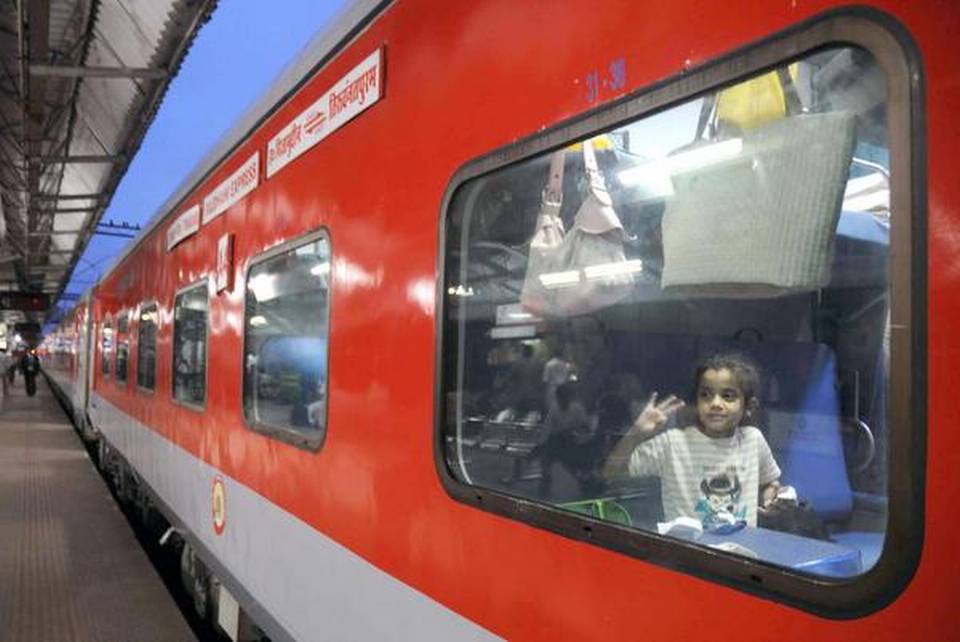It seems that the Indian Railways is all set to enforce new standards in efficiency and punctuality. For some time, the Railways had been focusing on improving safety levels in rail travel and improving its infrastructure in order to ensure rail safety. Since, safety of passengers and ensuring minimum rail accidents is the topmost priority, rail speed and punctuality had taken a hit in the short run. However, this policy was both understandable and laudable. Now, that the Railways has been able to ensure better safety standards, it is focusing on improving punctuality and also seems to be getting encouraging results in that direction.
The Railways have employed several strategies towards ensuring better punctuality and speed in its operations. At the forefront of these strategies has been the use of improved timetables and speed restrictions which has led to a remarkable improvement in punctuality. Apart from this, the Railways has also been working on eliminating mixed movement of freight and passenger trains. Moreover, in a major reform the practice of manual recording has also been abolished at 41 railways junctions. It has been replaced by the use of data loggers which has ensured a more accurate recording of punctuality.
Due to these commendable efforts by the Railways, there has been an improvement in monthly punctuality percentage from 59.95% in May 2018 to 73.52% in September, 2018. There has also been a decrease in the ‘Total time lost’ with the employment of these strategies and the time lost due to delays has come down by 55% between May, 2018 and September, 2018. In the same time period, the number of ‘Total Trains Lost’ has decreased by 36%.
The Railways has made it a point to ensure better management and planning since 2014 in order to ensure, among other things, better punctuality in rail operations. Poor timetabling before 2014 had resulted in inefficiencies that directly resulted in poor punctuality and delays. However, a revised timetable that was released on August 15 and the travel time of premium trains was reduced by 30 to 50 minutes. 4 to 5 mega blocks were worked out in different sections of each Division on one day of the week. Sufficient time was also devoted towards maintenance of fixed infrastructure like track structure, signalling gears and overhead equipment. Similarly, before 2014, mixed movement of freight and passenger trains had led to poor punctuality of passenger trains. Now, the Railways are working towards “convoy movement” of freight trains in a block so that unnecessary mix up between goods trains and passenger trains is avoided leading to better punctuality.
Apart from better infrastructure, time tables and management strategies, the Railways have been working towards ensuring better monitoring of the rail network. Before 2014, manual monitoring of arrival and departure of trains had been a major cause of delays. But now the Data loggers to monitor arrival and departure of trains have led to a much more accurate monitoring of around 80% mail/express trains. Apart from this, the real time information system that is being implemented through the use of satellites in order to plan freight operations and traffic flows has helped in plugging information gaps that were yet another cause of delays in the past.
The Railways have also replaced a number of conventional trains by MEMUs/ DEMUs. The conventional trains used to hinder speed and performance. Their replacement by MEMUs/ DEMUs is bound to increase mobility and bring down unnecessary delays improving punctuality in rail operations. In the current year, 50 services have been replaced by MEMUs/ DEMUs and another 50 are set to be replaced by March 31, 2019.
The most remarkable improvement can be seen in removal of Permanent Speed Restrictions. It led to saving of 297 minutes in running time between April 2018 and September 2018. Similarly, there was a total saving of 369 minutes in running time between September 2017 and August 2018.
